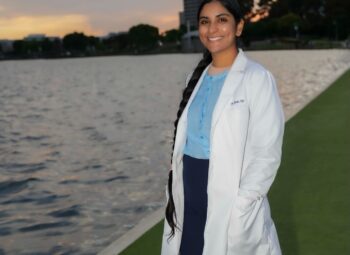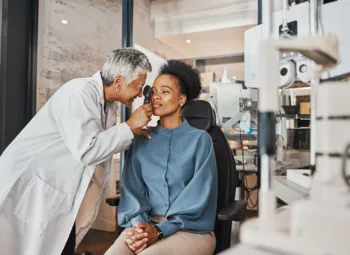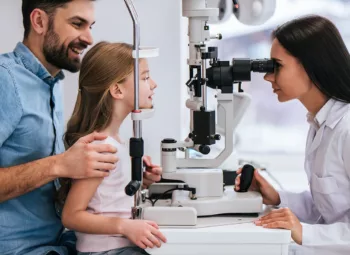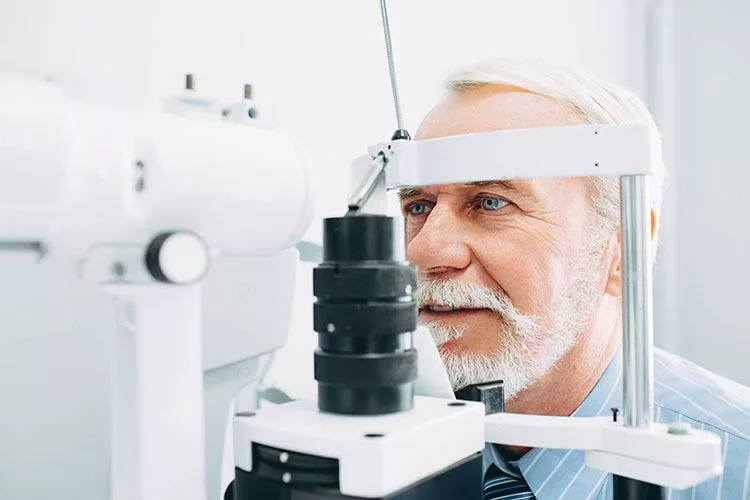
When to Schedule a Comprehensive Eye Exam with Your Ophthalmologist
Your overall quality of vision is not a direct indicator of how healthy your eyes are. In fact, many ocular conditions do not show any immediate symptoms until irreversible damage to your vision or eye has already occurred. This is why many ophthalmologists recommend their patients receive a comprehensive eye exam every one to three years.
If you have a pre-existing eye condition, a family history of eye diseases, or have experienced vision changes, you may need more regular exams to ensure your eye and vision health. So it is best to consult with your ophthalmologist about how often you should have your eyes examined.
If you don’t have any existing vision problems or a history of eye disease, your age is a primary factor in determining how often you should see your ophthalmologist for a comprehensive eye exam.
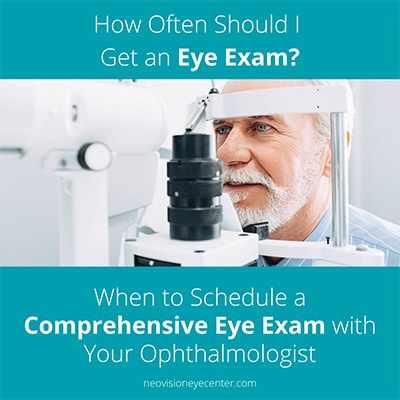
Comprehensive Eye Exams by Age
Eye conditions can develop at any age. Receiving regular exams is essential to diagnosing eye diseases early on and will ensure you receive the appropriate treatment before any permanent vision loss occurs.
Use the guide below as a baseline for how often you should schedule comprehensive eye exams based on your age.
Eye Exams for Infants
Unless otherwise advised by your pediatrician, your baby’s first eye exam should be at six months of age. Conducting an eye exam when they are less than a year old can help detect common eye conditions like Lazy eye (Amblyopia). This will ensure they begin the appropriate therapies and treatment as early as possible.
Eye Exams for Toddlers
It is recommended that you have your child’s eyes tested again around the age of three, or before entering kindergarten. Testing a toddler’s eye sight can help catch any vision issues that could interfere with their mobility or interrupt their schooling.
Eye Exams for Children and Teens
By the time your child is of school age, they should be receiving eye exams every one to two years. Annually eye exams are highly encouraged for children or teens who have existing vision or eye problems.
Adults Ages 20 – 39
Vision problems have typically stabilized by the time adults have reached 20 years of age. Ophthalmologists recommend getting eye exams every two to three years if you are under the age of 40 and do not experience any sudden changes in your vision.
Adults Ages of 40 – 59
Adults in the 40’s and 50’s should begin receiving comprehensive eye exams every one to two years. Even if you have been lucky enough to have perfect vision your whole life, it is very common to begin experiencing age-related vision loss after the age of 40. Presbyopia (age-related farsightedness), gradually weakens your eye’s ability to focus on things up close and affects nearly 2 billion people worldwide.
Your ophthalmologist will also want to know about any developing health conditions that could contribute to vision loss and begin pre-screening you for any signs of developing age-related eye conditions.
Adults 60+
Once you reach 60 years of age, we recommend having a complete eye exam annually. In addition to progressive vision loss, adults over the age of 60 are more likely to develop very serious age-related eye diseases like glaucoma, cataracts, and diabetic retinopathy.
Consult with an Ophthalmologist and Schedule an Eye Exam at NeoVision Eye Center
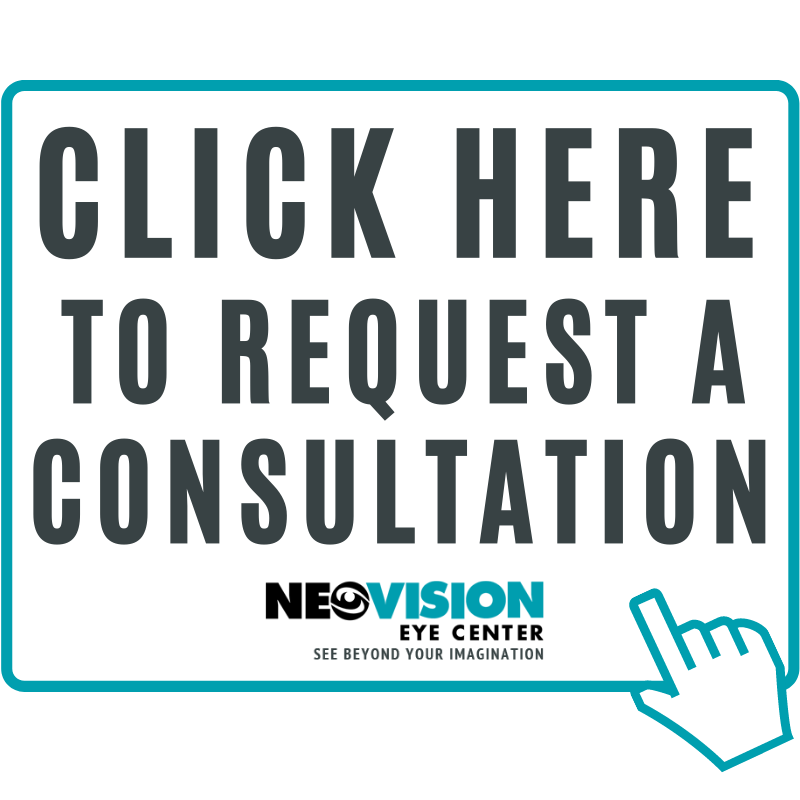
Attending regular eye exams is the best way to detect and prevent harmful eye conditions before it’s too late. Many detrimental eye diseases don’t present with any symptoms until they have already caused irreparable damage to your vision or health. Maintaining your overall well being includes prioritizing your ocular health through preventative eye exams.
If it’s about time for your next eye exam, or you have experienced recent changes in your vision, contact our ophthalmology team NeoVision Eye Center today.

